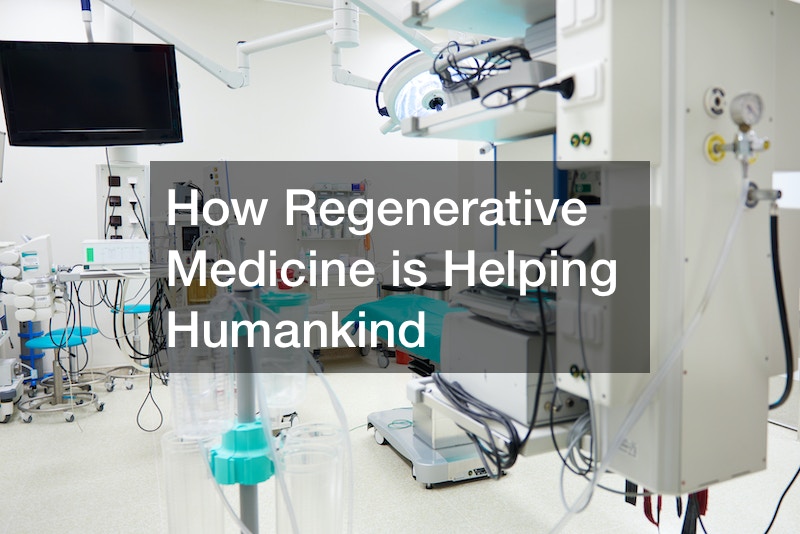

Every year, countless people set New Year’s resolutions to prioritize their health, their fitness, and their sense of wellbeing. But if you’ve ever set New Year’s resolutions before, you probably won’t be surprised to learn that 80% of people don’t keep the resolutions they make.
To some degree, this may not be that big of a deal. But for many people, January 1st is a time of committing to a lifestyle where you put your health first and stop overlooking your wellbeing. When enthusiasm fades, it can take a whole year before you start thinking about your health and fitness again. Everyone knows how important it is to put your health first, but that doesn’t mean we remember to do it, especially in our modern, fast-paced culture.
If prioritizing your health is difficult on ordinary days, it’s even harder to remember in times of life changes or serious stress. When you or your family are facing a tough time, you need to be there to perform at your best. Yet without prioritizing rest and eating a healthy diet, you might not be able to show up all the time for those who need you most.
That’s why we’ve compiled this list of ways to put your health first, even in the most trying times life can throw at you. If you can manage to put your health first when your life turns upside down, imagine how well you will do when things calm down again!
To learn how to put your health first no matter what, keep reading.
Grieving a Lost Loved One
Coping with the loss of someone you care about can be one of the hardest challenges you ever face, and not only in terms of your emotional wellbeing. Often you’ll find yourself under enormous stress as you make funeral arrangements and meet with other grieving family members. This not only affects your mental health, but your physical health as well. So even as you go through trusts and wills and everything else involved in losing someone you love, it’s important to continue to put your health first.
The body reacts very strongly to feelings of grief. Your immune system is weakened, making you more susceptible to illness; you could experience poor sleep, and you could be at a higher risk of experiencing heart problems.

However, even though staying healthy throughout this experience is important for your long-term wellbeing, it may seem like that’s simply too much to ask on top of everything else you’re going through. But don’t worry: it’s perfectly normal and acceptable to dial back on your health and fitness goals when you’re coping with grief. If you normally follow a strict diet and demanding exercise routine, it could be in your best interest to relax a little bit, especially where exercise is concerned. While exercise is known to have mood-boosting benefits, and may be a great way to clear your head when you feel overwhelmed, it can also be too much for your weakened body to handle. Instead of pushing yourself through a tough workout, focus on basic movement instead: taking long walks around the block is especially beneficial. This gives you some of the benefits of exercise without placing a lot of strain on your body.
Your diet might be the first thing to get out of control, as your daily routine gets upended and you start eating out with family and friends while you make arrangements with local funeral homes. But like exercise, this might be another thing you shouldn’t be too hard on yourself for. The most important thing is to drink lots of water so you stay hydrated, especially if you find yourself crying a lot, which can contribute to dehydration. Also, consume plenty of protein to help give you the energy you need. You should also limit your consumption of caffeine and alcohol, as these can dehydrate you even more.
Along with your physical health, caring for your mental health is of paramount importance when you’re experiencing grief. Being active in a church, practicing meditation or journaling, or reading self-help literature can be comforting and reassuring during your recovery. If you feel overwhelmed or unable to recover from your loss, you should strongly consider getting grief counseling. The most important thing to remember in times like this is that you should never be afraid to reach out for help when you need it.
Recovering From an Accident
Dealing with a serious accident can completely change the way you live your life. The process of regaining your health can take a long time in some cases, and it involves many physical and emotional challenges along the way. Whether you just got back from the hospital or finished working with your personal injury attorney, it’s important to place a high priority on your own wellness while you finish recovering.

The most important thing you can do after being injured in an accident is to visit your doctor regularly for all recommended appointments. While this might seem obvious, it’s a sad fact that some people walk away from accidents with trauma that they aren’t aware of, such as brain injuries, damage to ligaments, or herniated discs. If you overlook these injuries or leave them untreated, they could worsen and become even more difficult to recover from.
Thankfully, there are plenty of urgent care locations you can find near you. If you’re injured or not recovering from a past injury, be sure to search for the closest urgent care and go there to be assessed. The nearest immediate care clinic should be able to help you with whatever issues you may be facing. When you get to the emergency medical care center, professionals will be able to figure out what your injuries are, how to fix them, and how long you will be in recovery. It’s important you go to an urgent care facility when you are noticing signs that you are hurt. Don’t try to act tough and put it off. The longer you wait for help, the worse the recovery process may be.
This is an important step when living a life where you put your health first. If you’re injured, do not put off getting medical attention. People who put their health first know that injuries should not be ignored, especially when the pain is persistent. Putting your health first means addressing health problems once they present themselves. Be sure to keep this in mind so you can live your healthiest life.
Even if you’re seeing a doctor and your physical health is making a comeback with physical therapy, another critically important part of recovery is focusing on your mental health. Regaining full physical health will only get you so far if you find yourself left with severe emotional issues, such as anxiety or post-traumatic stress disorder. The process of emotional recovery works differently for everyone, but it’s usually best to start by seeking out a therapist or psychiatrist. You might even find one who specializes in helping people recover from traumatic situations.
After seeing the right specialists to help you recover, the next most important thing is to get plenty of rest. Generally, this is good advice for everybody, no matter what’s going on in their life. But when your body is recovering from an injury or trauma, it’s absolutely essential to give it as much time to sleep and relax as it needs. Normally a person needs seven to eight hours of sleep per night, but while you’re in recovery you might need longer. It’s important that you give your body what it seems to need during this time. Sleep deprivation can impair muscle recovery following an injury, as the healing process requires sleep in order to function. Needless to say, this is not a time to be pushing yourself.
Unfortunately, it can be difficult to sleep after sustaining an injury, especially if it comes with lingering pain. Some people find themselves unable to sleep because of anxiety, from worrying about their injury or reliving the event. You might require medications to get the rest you need, but in some cases, all it takes is consuming less caffeine and adhering to a regular sleep schedule. If you do take over-the-counter sleep aids, make sure you ask your doctor first, as they can sometimes interfere with recovery.
When you’re recovering from an accident-related injury, the most important thing for stress relief is to have the right people on your side. This can include your doctor and physical therapist, but it can also mean your disability lawyer or assistant, as they all provide services to help you get your life back on track. Whatever it takes, make sure you put your health first as you recover during this trying time.
Navigating a Divorce
No matter how necessary it is, going through a divorce is always a difficult experience. The emotional fallout, combined with the taxing process of dividing up your lives, can cause even simple tasks to feel overwhelming. If you’re dealing with daily divorce stress, one of the best ways to cope is to practice self-care. When you put your health first, you’ll help to strengthen your resolve and renew your energy, which is important for navigating a difficult divorce.

One of the best things you can do for yourself during a divorce is to design a simple daily routine and try your best to stick to it. In a time like this, it’s easy to feel out of control, like nothing in your life is stable or like it should be. Committing to a daily routine of some kind, even if it’s just a simple morning ritual, can help you feel in control again, and give you a sense of stability to last the rest of the day. This way you’ll be more centered and prepared when difficult moments show up for you.
Exercise is another good strategy for feeling more centered and in control. As we mentioned earlier, exercise is known for boosting your mood and clearing your mind. Getting out of your head and into your body may be the best way to avoid overwhelming unpleasant emotions during a divorce. High-intensity workouts particularly increase brain endorphins, which can help decrease feelings of mild depression. Of course, if you’re suffering from severe or prolonged depression, you should seek help from a qualified mental health professional right away. Even if you don’t feel like you suffer from depression, divorce counsel can help you navigate your situation and get your life back on track.
Another problem that tends to arise when a marriage ends is that you start to feel alone in the world. To combat that loneliness, make it a point to reconnect with your close friends and family members. Let them know you might need to lean on their shoulders while you traverse this difficult period of your life. You might even reach out to old friends you haven’t spoken to in a while. Don’t forget to actually go somewhere to meet with friends — getting out of the house helps gain clarity and relief from everyday challenges. By allowing yourself to feel surrounded by love, you’ll be able to find your footing in the world more easily. It’s helpful to realize that, no matter what happens, you don’t have to be alone.
Rediscovering Yourself After a Change
Sometimes you can lose your sense of who you are after a major life event, whether it’s parting ways with a significant person or recovering from a debilitating accident. This is usually accompanied by a lack of any sense of fulfillment, like your life has lost its meaning.
If you feel like this, chances are it’s because you feel like you’re a victim of the forces in your life. When we find ourselves in trying times, it’s usually because of someone else, even if it isn’t really their fault — someone accidentally pulled into the road in front of you, or a loved one unexpectedly dies, for example. Circumstances like this are completely out of your control, and they can cause you to feel like someone or something else is running your life.
Of course, you don’t have to be coming out of a major life-changing circumstance to feel unfulfilled or out of control. For many people, this feeling of not being your own person hits after many years of steady employment, when they start to realize that their life isn’t really going anywhere.
On its surface, finding yourself might not seem like it has anything to do with trying to put your health first. But when you lack a sense of meaning and fulfillment, it’s harder to start or maintain healthy habits. It’s also much easier to give in to bad habits, like overeating, staying up too late, or drinking too much. And besides, health is about more than just your nutrition and fitness level — you need a healthy mind and spirit, too. Having the confidence to meet new people, go places, and hit the dance floor are important parts of having a healthy life overall.

Depending on your situation, finding yourself could mean different things. If you recently exited an emotionally abusive relationship, finding yourself might mean getting a new apartment and decorating it to match your personality, such as with nature inspired art. If you’ve just recovered from a serious injury, finding yourself could mean rediscovering old hobbies or activities you used to enjoy and making them a part of your life again.
If you just woke up one day to realize that your life isn’t going where you want it to, you might start to rediscover yourself by making a list of all the things you’ve ever done that made you feel most alive. A big part of your identity is what activities you find to be most engaging, invigorating, and fulfilling. Maybe what you need the most is a new career.
Whether you decide to spend some time in prayer, meditation, or self-help literature, or if you choose to start a new hobby or look at boats for sale, it’s always a good idea to rethink your life and what you want it to be.
As you can see, it’s always possible to put your health first, no matter what’s going on around you. And when you put your health first, you’ll make sure you’re ready for whatever comes your way.



